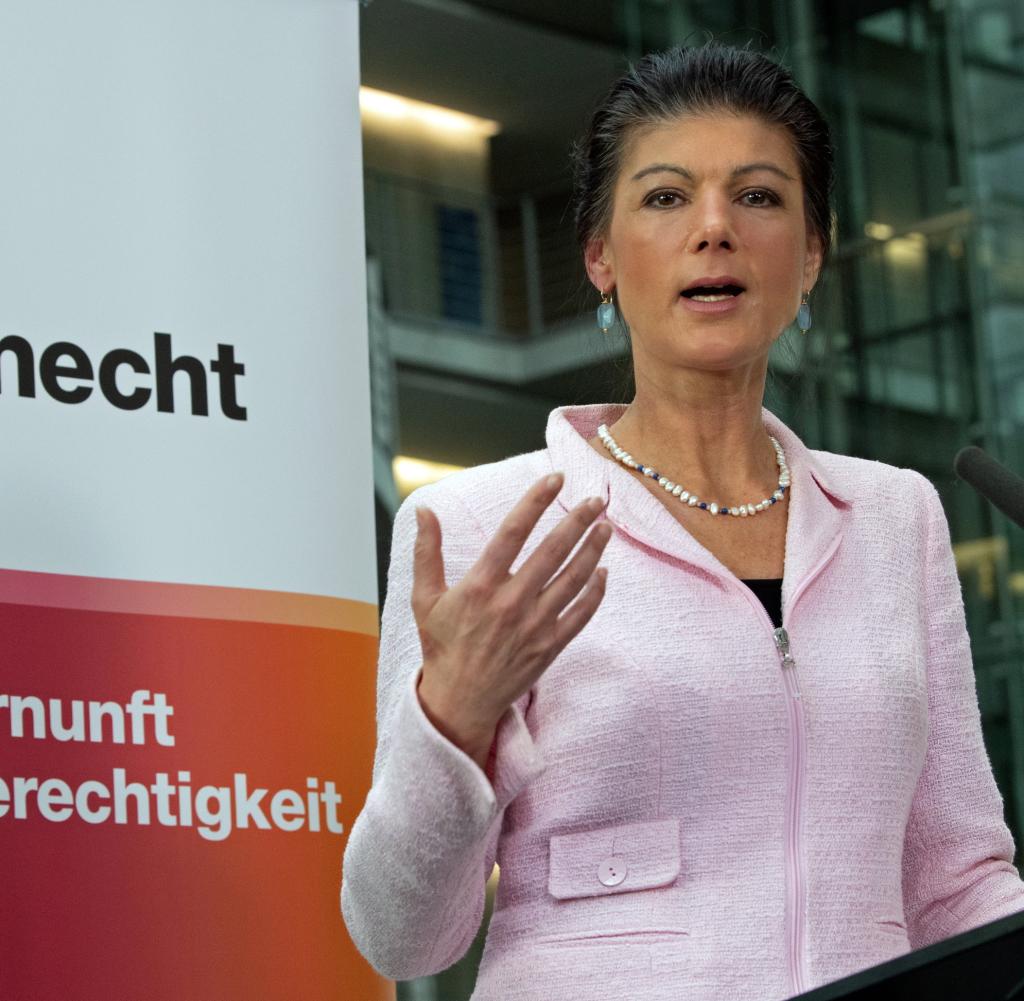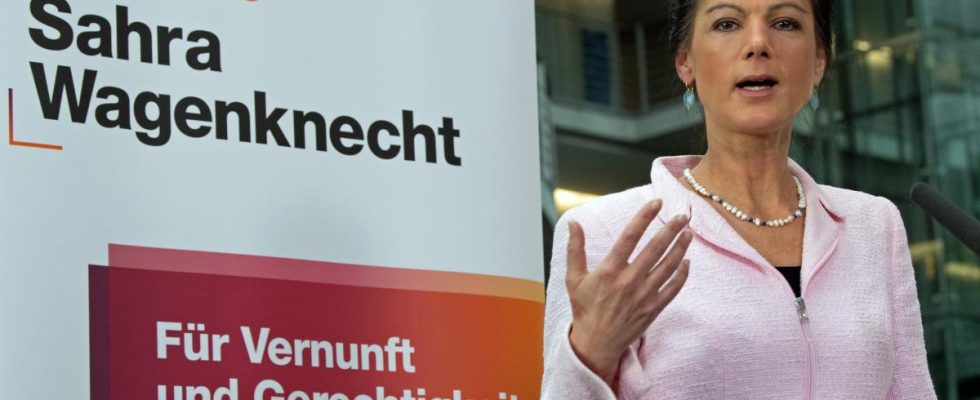AfD is further ahead in Saxony – Wagenknecht’s party has 11 percent

The BSW founded the first regional association in Saxony
Source: dpa/Jonathan Penschek
The AfD received the most votes in an Insa survey six months before the state elections in Saxony. The Sahra Wagenknecht Alliance (BSW) follows the CDU at some distance. In Thuringia, Wageknecht’s party achieved 15 percent straight away.
WLess than six months before the Saxon state elections, the AfD is clearly in first place in a survey when it comes to voter favorability. 34 percent of those surveyed said they would give their vote to the party if there were elections in Saxony on Sunday, according to the representative survey by the opinion research institute Insa on behalf of “Picture“ emerges. That is one point less than in the previous Insa survey from August 2023.
The CDU is behind with 30 percent. Prime Minister Michael Kretschmer’s party has achieved one point more than it did seven months ago. The newly founded Alliance Sahra Wagenknecht (BSW) came in third (11 percent).
The SPD and the Greens, currently coalition partners of the CDU in Saxony, would get 6 (-1 point) and 5 percent (-1) respectively and would have to worry about entering the state parliament, just like the Left (5 percent, -4). The FDP would not make it into the state parliament this time either (2 percent, -3).
A total of 1,000 citizens from Saxony were surveyed from March 11th to 18th, 2024 for the Insa Saxony trend on behalf of “Bild”. Election surveys are generally always subject to uncertainty. Among other things, weakening party ties and increasingly short-term voting decisions make it more difficult for opinion research institutes to weight the data collected. The institute states a statistical margin of error of 3.1 percentage points. In principle, surveys only reflect the opinion at the time of the survey and are not predictions of the election outcome.
Alliance Sahra Wagenknecht reaches 15 percent in Thuringia
According to a survey, the AfD has lost support in Thuringia, but remains the strongest force. In the current “Thuringia trend”, the party comes to 29 percent, five points less than in the previous such survey in July 2023. The CDU took second place with 20 percent (minus one point), according to the survey by Infratest Dimap published on Tuesday Order from the MDR resulted.
The Left followed with 16 percent (minus four points) and was therefore just ahead of the BSW party, which achieved 15 percent straight away. The Sahra Wagenknecht alliance overtook the SPD, which achieved nine percent (minus one). The Greens would barely make it into the state parliament with five percent (unchanged), while the FDP would no longer be represented there with less than three percent.
Forming a government would remain difficult because neither the red-red-green coalition nor any other coalition currently in practice in Germany had a majority. If the people of Thuringia could elect the Prime Minister directly, incumbent Bodo Ramelow (Left) would clearly be the candidate; 44 percent of those surveyed would vote for him. CDU state leader Mario Voigt would get 17 percent, AfD top candidate Björn Höcke would get 16 percent.
For the “Thuringia Trend”, Infratest Dimap surveyed 1,182 representatively selected Thuringians from Thursday to Monday.

